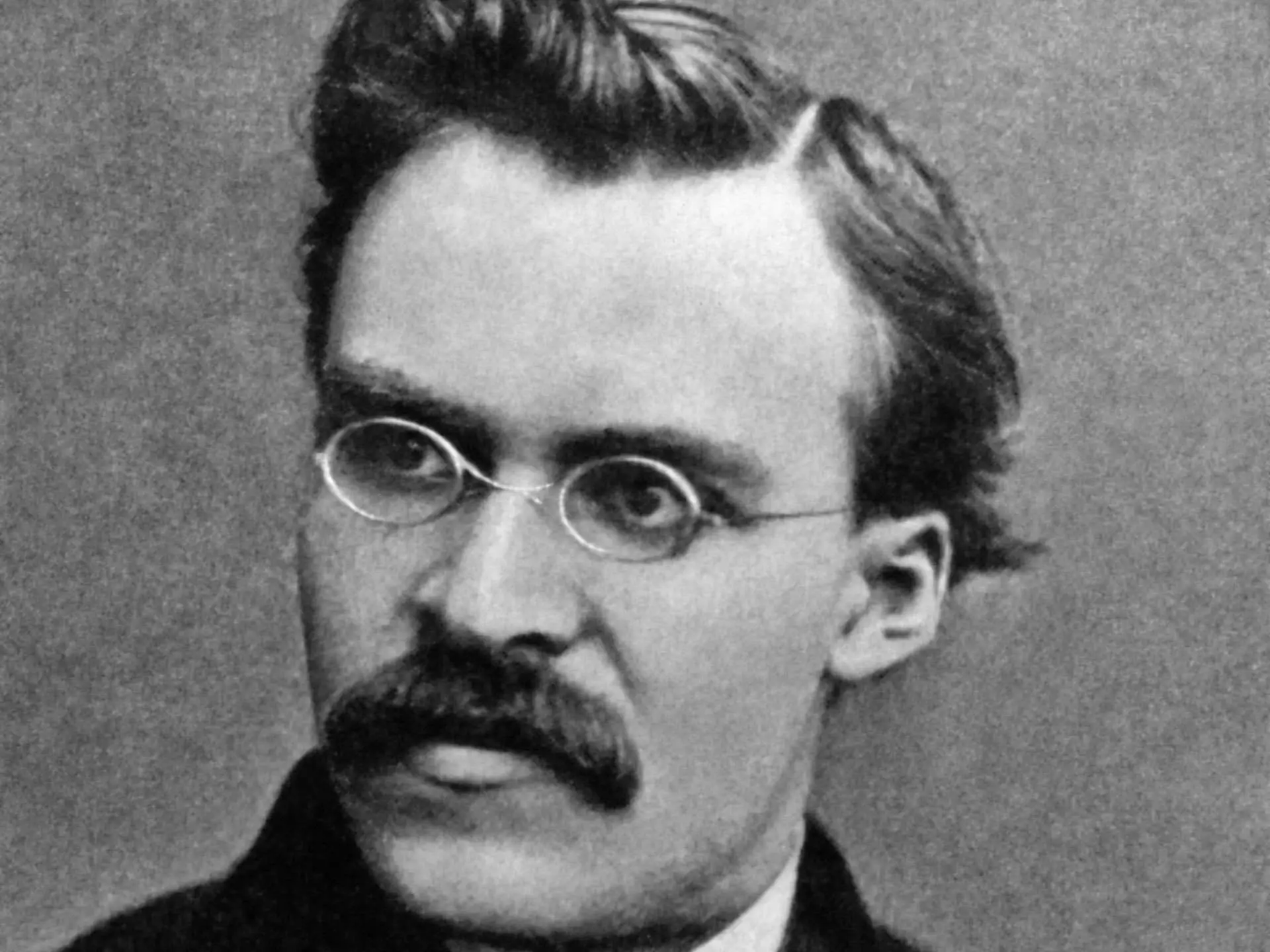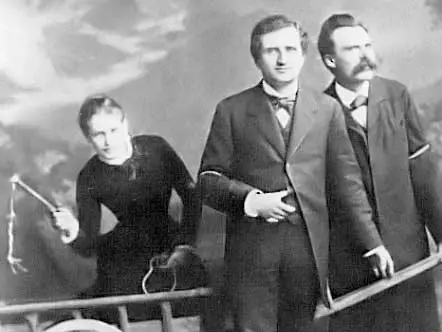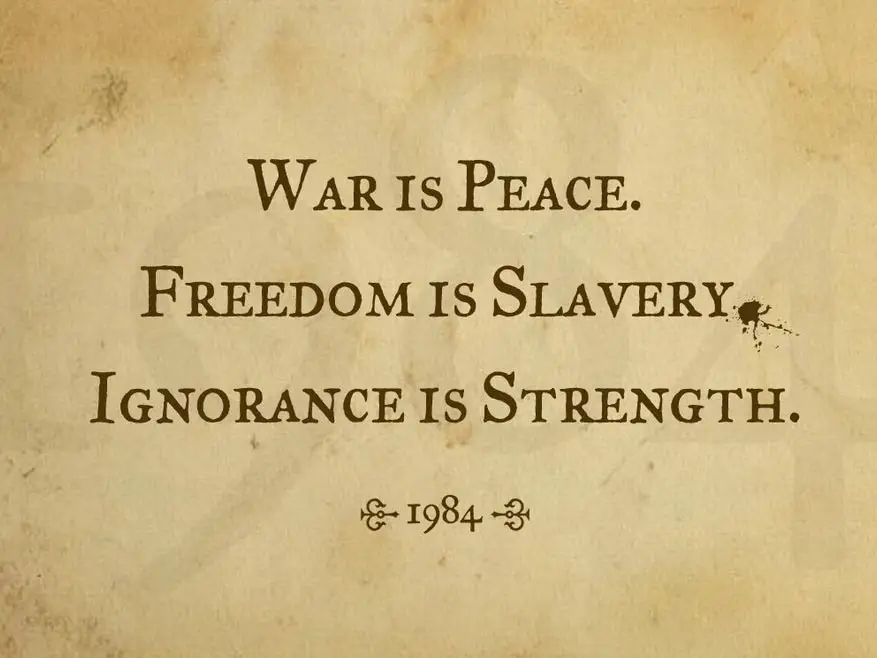Zizek on neighbourly love


Zizek on neighbourly love
It is relatively well known that Zizek calls himself a ‘Christian atheist’ – paradoxical as that may sound. In this post, let us have a look at a particular statement from Christ, ‘love thy neighbour as thyself’ that Zizek gives a particular spin to. This is, as readers of Zizek would expect, a political statement, not simply a moral or religious one; and it is in this sense that Zizek can entertain the relationship between love and neighbour. The paradox is precisely in the conception of religion as an apolitical system of belief, while Zizek’s contention is to assert its political content.
The constitutive outside
While looking at the statement ‘love thy neighbour as thyself’, it is the notion of neighbour that is of primary importance. Love gets its meaning from the position of the neighbour. As Chantal Mouffe reminds us (through a reference to Henry Staten), the constitution of identity “implies the establishment of difference, difference which is often constructed on the basis of a hierarchy … every identity is relational and that the affirmation of a difference is a precondition for the existence of any identity, i.e. the perception of something ‘other’ which constitutes its ‘exterior’” ([amazon asin=0415305217&text=On the Political], p. 15). The neighbour in Zizek includes all the frailties of humanity – the category of the neighbour functions according to our characterisation of ourselves as distinct. That is to say, the exterior boundary that is placed in conceiving the neighbour strengthens our ‘self-identity’. Zizek’s conclusion is thus that the statement ‘love thy neighbour’ as understood by Christians is meant as a strategy to avoid any real encounter with the neighbour. This same strategy is utilised in the liberal notions of equality and tolerance – the (intolerance of the) other is necessary for the creation of the (tolerant) self.
The statement ‘love thy neighbour’ precludes the real love of the neighbour on this ground – the reality of the neighbour stands as that reminder of our fragile identity. This is precisely why the ‘invasion’ of the foreigner remains the focal point of political discourse. As Zizek notes in [amazon asin=1844673022&text=The Fragile Absolute]: “what ‘bothers’ us in the ‘other’ (Jew, Japanese, African, Turk) is that he appears to enjoy a privileged relationship to the object – the other either possesses the object-treasure, having snatched it away from us (which is why we don’t have it), or poses a threat to our possession of the object” (p. 8). The characterisation of love in the statement ‘love thy neighbour as thyself’ precludes love as a Real experience – namely, as a traumatic experience. This is why he often refers to the dating agencies that offer ‘love without falling in love’ – such agencies exclude the traumatic experience:
“I claim that love, the experience of passionate love, is the most elementary metaphysical experience, it’s a platonic experience. In the sense of, you lead your easy, daily life, you meet friends, go to parties and whatever, everything is normal, maybe here and there a one-night stand, and then you passionately fall in love, everything is ruined.”
Love as traumatic experience
What this ultimately means for the Christian neighbourly love is not necessarily its denial. Zizek claims that the constitution of our identity by the other (by the neighbour) is precisely the location of the Real – i.e. we can access the Real through the neighbour, but this access would be a traumatic one. It is precisely in this sense that the ‘other’ (the Jew, the Arab, the foreigner, etc.; or to make this timelier, the Syrian refugees) is viewed as a threat to our existence. Our attitude towards the other is quite understandable. It is not simply racism or discrimination (which is precisely the liberal jargon to depoliticise the concretely political situation), but rather an existential threat to the very core of the society – its identity.1 The problem is in the approach to the neighbour from the position of trauma, as a threat – but of course Zizek’s point remains that through neighbourly love, we can in fact access our own identity, to have an insight into ourselves through love. The political climate that denies this accessibility merely accepts some idealistic (and ultimately apolitical) notion of humanity. Doing so, however, it also creates an image of the neighbour as less than human. It denies the neighbour their political agency and reduces them to mere behaviourism. Zizek’s reasoning for such a behaviour is not the liberal notion of racism (though he does not deny racism!), but the fear of exposing one’s own vulnerabilities. The fear is that in the mirror of the neighbour one will find their own lack:
it is easy to love the idealized figure of a poor, helpless neighbour, the starving African or Indian, for example; in other words, it is easy to love one’s neighbour as long as he stays far enough from us, as long as there is a proper distance separating us. The problem arises at the moment when he comes too near us, when we start to feel his suffocating proximity—at this moment when the neighbour exposes himself to us too much, love can suddenly turn into hatred. (Slavoj Zizek, [amazon asin=0415772591&text=Enjoy Your Symptom!], p. 8).
when the neighbour exposes himself to us too much, love can suddenly turn into hatred Share on X
We find here yet again the paradoxical relation of loving without falling in love – by maintaining a distance with the poor and the helpless, we can take care of them. When we get involved – i.e. in actual fieldwork, etc. – the traumatic experience is too high to bear, the world as we know it shatters, we are given to the traumatic experience.
The ethics of neighbourly love
This traumatic experience is avoided by the current liberal apolitical practice – liberalism emphasises the absoluteness of the ethical values that it holds, they are non-negotiable. Such absoluteness, of course, also leads to a lack of consideration for our political agency, as political agents who affect the world affairs. It is in this light that Zizek’s critique of universalisation of ethical positions can be understood. With the universalisation of ethics, we do not simply exclude the ethics that contradict our own. The fundamental gap is in the exclusion of the unethical – the positions that cannot be universalised (in a Kantian sense), but more fundamentally those that we deem unethical. To put this differently, absoluteness of ethical positions excludes more than a contrary position precisely in the sense that it excludes all positions that do not fit the contemporary social order.
Zizek thus asks a couple simple, though still pertinent, questions – on basis of which criteria are positions deemed ethical or unethical? What about historically unethical behaviours that gain ground in contemporary social order? What about the so-called cultural differences? Etc. The answers, at least partial ones, to such questions necessarily lead to a sense of ambiguity on which the criteria for exclusion are built. They lead to a paradoxical detachment from universalisation of what is already claimed to be universal – namely, that the ethics espoused by us is universal as long as it creates an exclusion, a duality ethical/unethical.
It is worthwhile to return here to Nietzsche’s critique of morality. In the first essay on his [amazon asin=052169163X&text=Towards the Genealogy of Morality],2 we find morality to rest fundamentally on dualities, which are ultimately reduced to good and evil. His genealogical approach to reclaim good and bad (rather than evil) as a distinction can thus be understood as creating a pluralist approach to morality: both evil and bad have a place in moral considerations, as long as neither is universalised. We can thus read Nietzsche as claiming that the moral standards constituting the social order are in fact false dualities – more positions are not only possible, but always exist within the social order. A claim to an absoluteness of ethical values can merely reproduce a false duality of ethical and unethical – but by doing so, it creates an extreme situation whereby the neighbour is fully excluded from the social order. What Zizek tells us is that by approaching love of the neighbour as a traumatic experience, we can follow the Nietzschean trajectory of negating the absolute exclusion based on absoluteness of ethical values.
Love of humanity
The ethics of neighbourly love, and universalisation of ethical values, lead us to their political counterpart in the form of universal human rights. Zizek’s critique of human rights is to be understood in that light.3 To be sure, a critique is not a rejection – Zizek does not aim to act against human rights without reservation. His critique is based on the universalisation, the absoluteness, the unconditional. What is at stake is precisely the notion of loving one’s neighbour and acting to enforce a particular politico-ideological status quo. Zizek thus points out that humanitarian interventions rest on this paradoxical attachment to humanity, while at the same denying the very articulation of the ‘inhuman’ within human action. Were not, in other words, actions of Nazi Germany, or those of Stalinist Russia, acts of love? Zizek’s claim here is very reminiscent of Nietzsche’s lament that we are but ‘human-all-too-human’. Claiming an absoluteness of human endeavour denies the accessibility of the traumatic experience through which our own actions could be understood.
Zizek’s claim is very simply that acts of terror, of dehumanisation, of excessive violence and brutality, reside within the scope of what it is to be human in the first place. Such radical evil is nevertheless ineradicable and deserves a closer attention than mere negation through an absoluteness. As we said before, absolute ethical values do not access the neighbour due the traumatic experience that is inherent through their exclusion. We also referred to the Jew as the archetypal other that was negated: “what ‘bothers’ us in the ‘other’ (Jew, Japanese, African, Turk) is that he appears to enjoy a privileged relationship to the object – the other either possesses the object-treasure, having snatched it away from us (which is why we don’t have it), or poses a threat to our possession of the object” ([amazon asin=1844673022&text=The Fragile Absolute], p. 8). What we find in Nazi Germany (and in contemporary exclusion of the neighbour, though to a much lesser extent!) is the popularity of depicting the lack of our enjoyment through the lens of the neighbour who threatens it by their mere presence. The Jew, in other words, was deemed as someone (or rather something) who posed a threat to what was deemed already ours, even though whatever it was that we desired was nothing more than an empty promise. And does not the Syrian refugee pose the same threat, and precisely a threat to a promise by our future leaders?
This fantasmatic empty promise is fuelled by, again, the unwillingness to go through the traumatic experience that access to the neighbour holds. It deprives us from taking responsibility (or to put it in Kantian terms, to act autonomously) and place our political agency at the hands of a leader, a Führer. Let us not be mistaken in thinking that Hitler was an exception, we suspend our moral judgment after every election, we suspend our political agency after casting our vote. The typical phrase uttered by civilians after they were shown the concentration camps in Germany was to abstain from responsibility by claiming, ‘Wir haben es nicht gewusst’ – ‘We didn’t know’. Implausible as that may be, the fact remains that they should have known,4 that suspending their moral judgment for the sake of an empty promise by a leader led to this atrocity.
As Michael Oakeshott notes in his brilliant essay The Masses in Representative Democracy in [amazon asin=0865970955&text=Rationalism in Politics and Other Essays] (the essay is also published in [amazon asin=9027700079&text=Freedom and Serfdom], though it is considerably more expensive):
An association of individuals requires a ruler, but it has no place for a ‘leader’. The ‘anti-individual’ needed to be told what to think; his impulses had to be made aware of his power; and these were the tasks of his leaders. Indeed, from one point of view, ‘the masses’ must be regarded as the invention of their leaders (p. 373).
‘the masses’ must be regarded as the invention of their leaders Share on X
Such promises of leaders, those with concrete plans and knowledge of world affairs, do not simply disregard the immense diversity and thus also unpredictability of human conduct; more problematically, they create a situation whereby our moral judgement is turned into culpability, our responsibilities as individuals are turned to apathy, our autonomy into obedience. Whatever one may think of Arendt’s [amazon asin=0143039881&text=book on Eichmann], one thing is undeniable: Eichmann hid behind the logic denial of culpability – he knew, unlike them, but he was just following orders; he was not culpable, because his autonomy was turned to obedience.
We should not make a mistake here to demand another form of absolutism in morality. It is easy to condemn the past – we do not live there with the knowledge that we have today. The last few lines are thus not meant in the tradition of justice theory that claims a superiority of moral judgment. Zizek’s point here is that knowledge of such situations does not preclude their occurrence in a future time. Humanity is not a notion that can simplistically be applied to a particular group that holds moral superiority; precisely because doing so is what leads to the inhuman acts. Did not the Nazis in fact hold precisely that belief? What this insight gives us is the mirror image of our own excessive possibilities. And in this sense it lets us see the neighbour as more than a merely inhuman other, but as a form of our own constitution. The moment the other is deemed inhuman, we have created the necessary condition of acting inhumanely towards them.
There is, furthermore, nothing paradoxical in claiming inhuman treatment by the humanists, as Carl Schmitt eloquently reminded us, “because the idea of humanity is two-sided and often lends itself to a surprising dialectic” (Schmitt, [amazon asin=0914386301&text=The Nomos of the Earth], p. 103). It is this dialectic that Zizek is concerned with in his view of humanity; for a conception of humanity leads to a conception of the other as inhuman. Is it still surprising that the Nazis aimed to eliminate Jews in the name of humanity? But perhaps a more contemporary example would do: Abu Graib. This, counter theme of my blog, is not at all paradoxical precisely because the ‘ascent to humanity’ (to echo Hermann Cohen) demands the descent of the neighbour – unless, one is willing to confront the neighbour.
Confronting the neighbour
We are thus turning a full circle. Denying ourselves the traumatic experience that is the result of confronting the neighbour, we are exposing ourselves to a possibility of dehumanisation. It is easy, and fully understandable, to consider the other a monster that needs to be eradicated. However we look at it, there are some people in this world who cannot wait for the afterlife and actively seek to destroy this life on earth. Zizek’s response is to view even that ‘monster’ as oneself – the meaning of neighbourly love is the confrontation with the mirror image of ourselves as perpetrators of atrocities.
It is equally easy, and indeed understandable, to demand higher ethical standards from our neighbours. But one should bear in mind to reject moral absolutism and to recognise that we too have held values that we now despise. This is not a point of moral relativism5, this is precisely a point of continuously revaluing our values, and rejecting a stalemate in morality. An understanding of humanity is only possible by an understanding of its counterpart, the inhumanity in us.
Neighbourly love is this critical approach to the other. It rejects the absolutism of ethics and morality, while maintaining the possibilities of change. It may be volatile and capricious, but it gives rise to possibilities of love as a more encompassing notion. Zizek’s conception of neighbourly love does not simply reject that which cannot be loved (i.e. the inhuman acts) nor does it simplistically accept them (i.e. as a universality); more fundamentally, neighbourly love seeks a continuous realignment of ethical and political qualities, which is only possible by confronting the other as they are – that is, to confront them as we would ourselves, by loving them as we would ourselves.
Sign up for Paradox of the Day mailing list and please visit our Patreon support page.
- Or, to be more precise, to the multiplicity of its identities. Cf. Laclau & Mouffe, Hegemony And Socialist Strategy: Towards A Radical Democratic Politics.
- I am of course aware that the more commonly translated title is On Genealogy of Morals (which is Kaufmann’s translation). Scholars are quite divided on the issue whether it is ‘morals’ or ‘morality’, and whether it is ‘towards’ or ‘on’. I do not think Nietzsche’s three essays to be more than contributions towards a genealogy, and I don’t think he intended them to be more than that – hence my preference for ‘towards’. There are, however, good reasons to keep ‘on’, especially if we keep in mind the many titles in his Thus Spoke Zarathustra.
- Cf. his Against Human Rights (paywall); but you can browse through our sister site, for some brief overviews.
- Concentration camps were not, by rule, set far away from civilian populations; some were close enough to see and hear (a mile or two). I feel obliged to mention that the precise amount of camps is not known, though the list nears 1.000. Cf. Jewish Virtual Library.
- It is hard to defend such a position, and despite popular belief, hardly any philosopher held such a view – indeed, contra popular belief, I am saying that Nietzsche was not a moral relativist, but that’s for another article.







You’re expansion on Zizek is always so clear and digestible thanks for the efforts. Does Zizek know how much you mean to him?